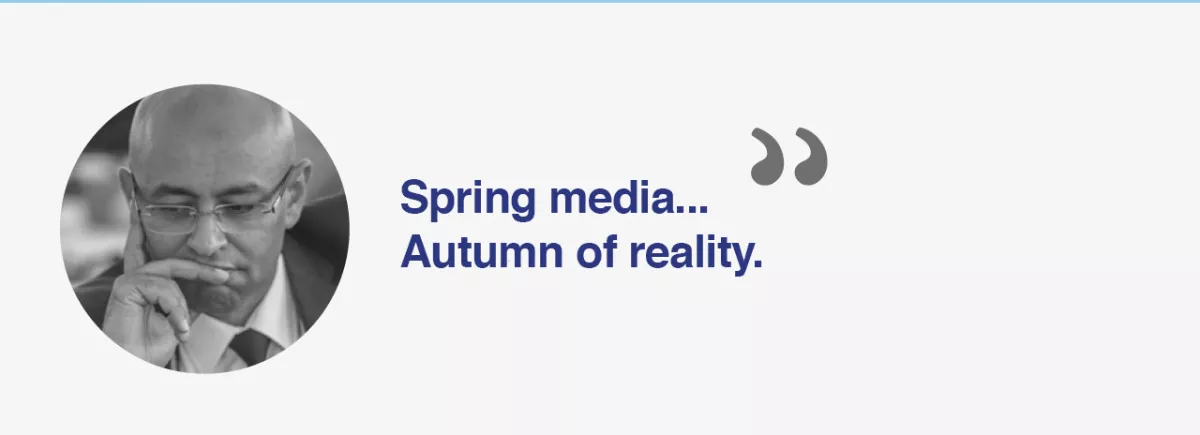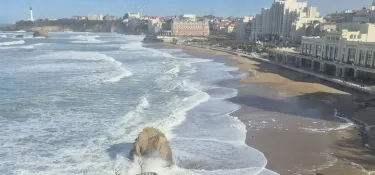
I am a Libyan journalist: Tarek Abed Al Salam Al Houni
Related project
HiwarThe words of Tarek Abed Al Salam Al Houni, editor-in-chief at Clouds News Agency, Tripoli, Libya.
I am Tarek Abed Al Salam Al Houni.
The Revolution sought reform, development and the establishment of justice. Quite unexpectedly, it offered unbounded freedom to the media after decades of censorship. But this freedom turned to chaos, anarchy and then total absurdity because of political funding. This is the case now for the majority of private TV and radio stations.
Before the Revolution, there was hypocrisy, flattery and praise. Since the Revolution, we have political whims, vested interests, conspiracies and virtual assassinations. Nobody imposes any standards or limits. We associate all of that with the liberation movement and we proudly spout slogans, when what we're faced with is a media that cheats society, either intentionally or through complicit silence. The sickness has two forms: one puts out misleading information, and the second stays silent about justice.
Corruption of the media isn't limited to your professional life or to your conscience. Nowadays it also undermines your dignity, especially now that the private money is supplemented by money from abroad. That money rents, buys or appoints all those people who keep on wrecking the country through measures that are supposed to help it with its transition to a better future, not take it back to the past.
Society is under threat and the country is in danger, because of this situation that has spread and because of the corruption in the media. Their lack of professionalism could lead to an even worse disaster than the one they caused by their hypocrisy in the decades before, especially as they are in a transitional period. After the buzz of excitement that was about when the new media were created and launched, they slumped into pessimism and frustration and shifted to a narrative of hate towards individuals and institutions, inciting chaos and division and undermining democracy instead of propping it up.
The country is going through a crucial, delicate stage in its history. Most of the media distort public opinion by their constant contradictions; they're all contaminated now.
In a country whose goals include good governance, it's true that the media must have freedom of expression. But this freedom isn't just for people working in journalism. It's also for people who play an important role in the practical implantation of the three well-known principles of good government: transparency, responsibility and honest dealing. There's also a mission to enlighten people, which is a responsibility of every modern organ of communication. They should enlighten people by providing the information they need to understand current events, by revealing the truth and fighting the forces of ignorance.
We need a media whose ultimate goal is to build and which will work to achieve that, to rebuild this country that years of weakness have wrecked.
In order to sustain democratic debate in Libya, CFI launched Project Hiwar in early 2017 in partnership with the Crisis and Support Centre of the French Ministry of Europe and Foreign Affairs. The project creates a forum for the expression of different points of view on the Libyan press.
One session made up of four workshops was arranged in Tunisia. It was attended by twelve Libyan journalists, who travelled from Libya, Jordan, Turkey, Egypt and Tunisia.
This article forms part of the booklet I am a Libyan journalist, which collects a variety of pieces written by the journalists involved in Project Hiwar.



